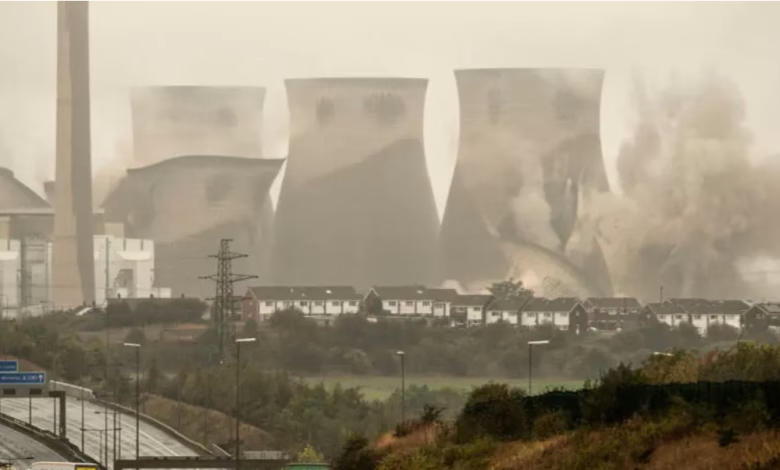“Britain Becomes First G7 Country to End Coal Power

- Energy emissions make up 75% of greenhouse gases.
- G7 plans to phase out coal by the early 2030s but allows flexibility for some countries.
- Coal accounts for over 25% of Germany’s and 30% of Japan’s electricity.
- Continued coal reliance poses challenges for renewable energy transition.
Britain is set to become the first G7 nation to end coal-fired power generation with the closure of its last plant, Uniper’s Ratcliffe-on-Soar, located in the Midlands, on Monday. This marks the end of over 140 years of coal power in the country.
In 2015, the UK committed to shutting down its coal plants within a decade to meet its climate goals. At that time, coal accounted for nearly 30% of the nation’s electricity supply, but by last year, this figure had dropped to just over 1%.
Julia Skorupska, Head of the Powering Past Coal Alliance, praised the UK’s efforts, stating it has demonstrated that phasing out coal power can be done at remarkable speed. This shift away from coal has significantly contributed to cutting Britain’s greenhouse gas emissions, which have fallen by more than half since 1990.
Britain aims to achieve net zero emissions by 2050 and plans to fully decarbonize its electricity sector by 2030. This will require a significant increase in renewable energy sources like wind and solar.
Energy Minister Michael Shanks highlighted the transition, saying that while the coal era is ending, it opens the door to new opportunities and jobs in the renewable energy sector.
Emissions from energy account for approximately three-quarters of total greenhouse gas emissions, and scientists have emphasized the need to reduce fossil fuel usage to achieve the targets outlined in the Paris climate agreement. The pressing need for action has prompted discussions among major economies about transitioning away from coal power.
In April, the G7 countries reached a consensus to phase out coal power by the first half of the next decade. However, the agreement also allowed some flexibility for economies that rely heavily on coal, which has drawn criticism from environmental groups advocating for a more aggressive approach to climate change.
Christine Shearer, a Research Analyst at Global Energy Monitor, noted that significant work remains to be done to meet the 2035 target and potentially advance it to 2030. She specifically highlighted the challenges facing countries like Japan, the United States, and Germany, which are still heavily reliant on coal.
Despite the G7’s commitments, coal power continues to contribute significantly to energy generation in some member countries. In Germany, coal accounts for over 25% of electricity production, while Japan relies on coal for more than 30% of its energy needs.
The ongoing reliance on coal in these countries underscores the complexity of the transition to renewable energy sources and the urgent need for effective policies and strategies to accelerate the phase-out of fossil fuels globally.






